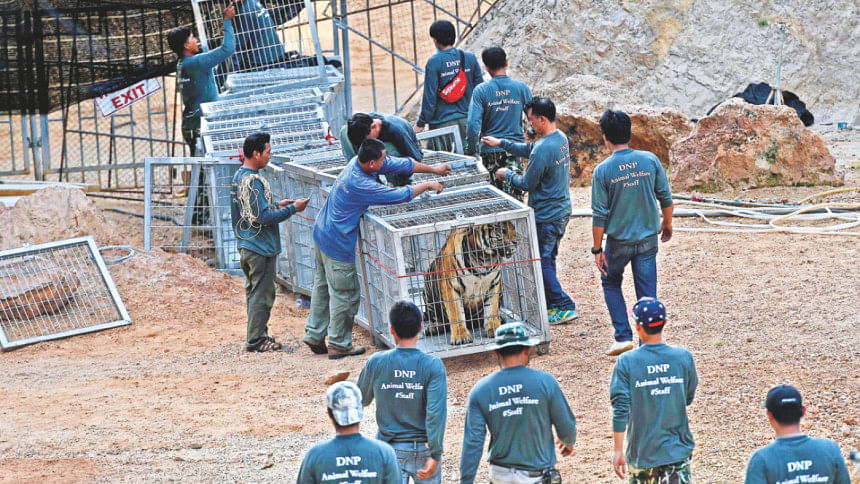40 dead tigers found in temple

Thai wildlife authorities found 40 tiger cub carcasses in a freezer in Thailand's infamous Tiger Temple yesterday as they removed live animals in response to international pressure over suspected trafficking and abuse.
The Buddhist temple in Kanchanaburi province west of Bangkok had become a tourist destination where visitors snapped selfies with bottle-fed cubs.
But the temple has been investigated for suspected links to wildlife trafficking and abuse. A raid that began on Monday is the latest move in a tug-of-war since 2001 to bring the tigers under state control.
Tiger parts are used in traditional Chinese medicine.
The 40 dead tiger cubs were found in a freezer in a kitchen area, said Adisorn Nuchdamrong, deputy director-general of the Department of National Parks.
"Foreign volunteers at the temple today told us about it and showed us the freezer. Perhaps they felt what the temple is doing isn't right," Adisorn said.
"They must be of some value for the temple to keep them," he said. "But for what is beyond me."
Officials wearing protective masks displayed the bodies of the cubs to media at the temple. Also on display was the body of a Binturong, a protected species commonly known as a bearcat, which the authorities found with the cub carcasses.
The temple said in a comment on its Facebook page that wildlife authorities had already been aware that the carcasses were in the freezer. The carcasses of cubs that had died had been kept, rather than cremated, since 2010 on the instructions of a former vet, it said.
Adisorn told Reuters the department had not previously known about the cubs.
"The temple has notified us when grown tigers die, but never the cubs," he said.
Officials have moved 61 live tigers from the temple since Monday, Adisorn said, leaving 76 still there.
Thailand has long been a hub for the illicit trafficking of wildlife and forest products, including ivory. Exotic birds, mammals and reptiles, some of them endangered species, can often be found on sale in markets.
"It's clear that the welfare of the tigers is not a priority and their lives are full of abuse and commercial exploitation for the entertainment of tourists," said Jan Schmidt, Asia-Pacific Wildlife Adviser at World Animal Protection, in a statement.

 For all latest news, follow The Daily Star's Google News channel.
For all latest news, follow The Daily Star's Google News channel. 



Comments